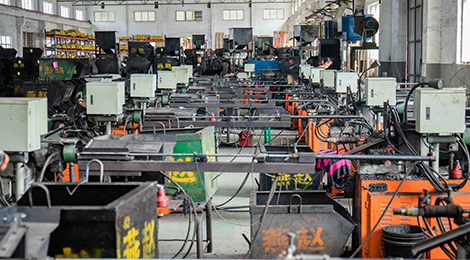unf bolts manufacturer
Nov . 25, 2024 17:08 Back to list
unf bolts manufacturer
Understanding UNF Bolts The Role of Manufacturers in Quality and Innovation
UNF bolts, or Unified Fine Thread bolts, play a crucial role in various industries, providing the necessary strength and durability for a multitude of applications. With their tightly spaced threads, UNF bolts are designed to withstand higher loads, making them ideal for mechanical assemblies in automotive, aerospace, and construction sectors. The importance of quality manufacturing in this field cannot be overstated, as it directly impacts the performance and safety of the end products.
The Significance of UNF Bolts
UNF bolts are recognized for their precision and fine threading, which allows for a tighter grip compared to their coarse-thread counterparts. This characteristic makes them suitable for applications where vibration resistance is paramount, such as in engines and machinery. Additionally, their design helps in reducing the risk of cross-threading, a common issue that can lead to significant operational failures. The correct application of UNF bolts ensures that structures and machines remain secure, avoiding potentially disastrous consequences.
The Role of Manufacturers
The manufacturing process for UNF bolts is complex and requires a combination of cutting-edge technology and skilled labor. Manufacturers must adhere to stringent industry standards and quality control measures to ensure that each bolt meets the required specifications. This involves selecting high-quality materials, typically carbon steel or stainless steel, which can withstand stress and corrosion.
Material Selection and Treatment
One of the most critical aspects of UNF bolt manufacturing is material selection. The properties of the material determine the strength, ductility, and longevity of the bolts. High-grade steel alloys are often used to ensure superior performance. Furthermore, manufacturers may apply various surface treatments, such as zinc plating or coatings, to enhance corrosion resistance and reduce wear and tear.
Precision Engineering
unf bolts manufacturer

Precision engineering is another essential component of producing UNF bolts. Advanced machinery, such as CNC (Computer Numerical Control) lathes and milling machines, is utilized to achieve the exact dimensions and tolerances required. The thread cutting process is particularly vital; any inaccuracies can lead to improper fitting, reducing the efficacy of the bolt in its application. As such, consistent monitoring and testing throughout the manufacturing process are crucial.
Innovations in Manufacturing
As industries evolve, so do the technologies and practices in bolt manufacturing. Innovations such as automated production lines and advanced materials, including composites and specialty steels, are being integrated into the manufacturing process. These advancements not only enhance efficiency but also improve the overall quality of the bolts produced.
Moreover, manufacturers are increasingly adopting environmentally friendly practices. Sustainable sourcing of materials, energy-efficient production methods, and recycling initiatives are becoming more common, reflecting a growing commitment to corporate social responsibility.
Global Market and Competition
The global demand for UNF bolts continues to rise, driven by growth in construction, automotive, and aerospace industries. As a result, manufacturers are facing increased competition not only locally but also on an international scale. To stand out, manufacturers must prioritize quality, customer service, and innovation.
Collaboration with clients to understand their specific requirements allows manufacturers to tailor products that fit unique applications, thereby fostering long-term partnerships. Additionally, adopting cutting-edge technologies and continuously improving operational efficiencies can help manufacturers reduce costs while maintaining high quality.
Conclusion
In conclusion, UNF bolts are indispensable components across various sectors, ensuring the safety and reliability of numerous systems and structures. The role of manufacturers is critical in this regard, as they not only produce these essential items but also drive innovation and quality in the industry. As the demand for UNF bolts continues to grow, manufacturers must remain committed to excellence in production, embracing new technologies and sustainable practices. By doing so, they not only enhance their competitive edge but also contribute positively to the industries they serve. Whether in ensuring the safety of an aircraft or the reliability of machinery, the importance of high-quality UNF bolts produced by skilled manufacturers cannot be underestimated.
Latest news
-
High-Quality Panel Stud Bolt Reliable Panel Stud Bolt Factory & Suppliers
NewsJul.08,2025
-
High-Precision Fine Thread Locknuts Manufacturer & Supplier Custom Solutions
NewsJul.08,2025
-
PH Imperial Stud Bolt – High Strength Fasteners from Leading Supplier & Factory
NewsJul.07,2025
-
High-Quality Allen Wrench Bolts Leading Factory, Company & Suppliers
NewsJul.07,2025
-
Wholesale Ball Stud Bolt - High Quality Supplier & Factory Price Reliable Wholesale Ball Stud Bolt Company
NewsJul.06,2025
-
High-Strength Alloy Bolts Manufacturer & Supplier Quality Alloy Fasteners Factory
NewsJul.06,2025
